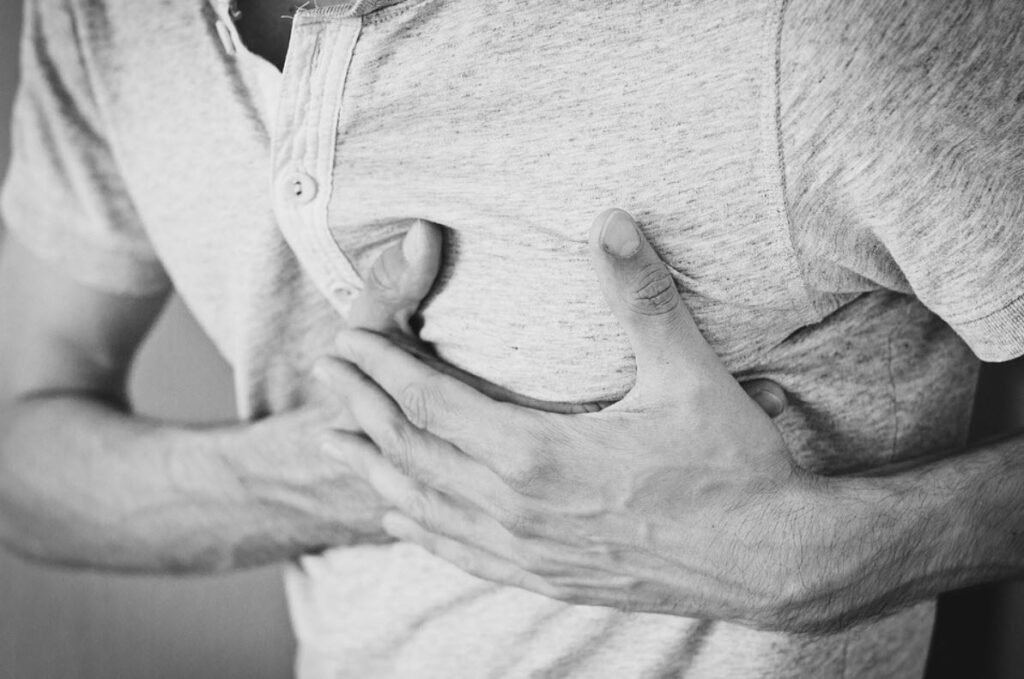
More than 10 million people in the world have heart attacks each year. Many of them don’t act quickly enough to make it to the hospital on time for help or get treated. When a heart attack happens, delay in treatment can be deadly.
What Is a Heart Attack and Who Is At Risk?
A heart attack happens when blood flow to the heart suddenly becomes blocked and the heart can’t get oxygen. If not treated quickly, the heart muscle fails to pump and begins to die. Heart attacks most often occur as a result of coronary heart disease (CHD), also called coronary artery disease.
Also Read: 5 Powerful Exercises To Increase Your Mental Strength
Certain risk factors make it more likely that you will develop CHD and have a heart attack. Major risk factors for a heart attack that you can control include
- smoking,
- overweight and obesity,
- high blood pressure,
- high cholesterol,
- diabetes,
- an unhealthy diet, and
- lack of physical activity
Risk factors that you can’t control include a family history of early heart disease and increasing age. Talk to your family doctor to find out whether you are at risk for a heart attack.
Of the people who die from heart attacks, about half die within an hour of their first symptoms and before they reach the hospital.
Know the Symptoms of a Heart Attack
Many people aren’t sure what’s wrong when they are having symptoms of a heart attack. Some of the most common warning symptoms of a heart attack for men and women are:
- Chest pain or discomfort – Most heart attacks involve discomfort in the center or left side of the chest. The discomfort usually lasts for more than a few minutes or goes away and comes back. It can feel like pressure, squeezing, fullness, or pain. It also can feel like heartburn or indigestion.
- Upper body discomfort – You may feel pain or discomfort in one or both arms, the back, shoulders, neck, jaw, or upper part of the stomach (above the belly button).
- Shortness of breath – This may be your only symptom, or it may occur before or along with chest pain or discomfort. It can occur when you are resting or doing a little bit of physical activity.
Other Possible Symptoms of a Heart Attack
- Pay attention to these other possible symptoms of a heart attack:Breaking out in a cold sweat
- Feeling unusually tired for no reason, sometimes for days (especially if you are a woman)
- Nausea (feeling sick to the stomach) and vomiting
- Light-headedness or sudden dizziness
- Any sudden, new symptoms or a change in the pattern of symptoms you already have (for example, if your symptoms become stronger or last longer than usual)
Heart Attacks Don’t Always Cause Common Symptoms
Not all heart attacks begin with the sudden, crushing chest pain often seen on TV or in the movies, or other common symptoms such as chest discomfort. The symptoms of a heart attack can vary from person to person. Some people can have few symptoms and are surprised to learn they’ve had a heart attack.
If you’ve already had a heart attack, your symptoms may not be the same for another one. It is important for you to know the most common symptoms of a heart attack and also remember these facts:
- Heart attacks can start slowly and cause only mild pain or discomfort. Symptoms can be mild or more intense and sudden. Symptoms also may come and go over several hours.
- People who have high blood sugar (diabetes) may have no symptoms or very mild ones.
- The most common symptom, in both women and men, is chest pain or discomfort. But women also are somewhat more likely to have shortness of breath, nausea and vomiting, unusual tiredness (sometimes for days), and pain in the back, shoulders, and jaw.
Any time you think you might be having heart attack symptoms or a heart attack, don’t ignore it or feel embarrassed to call for help. Here’s why:
- Acting fast can save your life.
- An ambulance is the best and safest way to get to the hospital. Emergency medical services (EMS) personnel can check how you are doing and start life-saving medicines and other treatments right away. People who arrive by ambulance often receive faster treatment at the hospital.
- The emergency call operator or EMS technician can give you advice. You might be told to crush or chew an aspirin if you’re not allergic, unless there is a medical reason for you not to take one. Aspirin taken during a heart attack can limit the damage to your heart and save your life.
- Every minute matters. Never delay calling to an emergency care to take aspirin or do anything else you think might help.
- Your heart may stop beating during a heart attack. EMS technicians have the training and equipment needed to treat you if this happens.
- Don’t drive yourself to the hospital. You can cause a car accident if your symptoms worsen.
- When given quickly, medicines and other treatments can stop a heart attack.
Action Steps To Take Now—Before a Heart Attack Happens
Work out an emergency heart attack action plan with your spouse or someone else close to you so you will know what to do if a heart attack occurs. This is especially important if you are at high risk for a heart attack or have already had one. Steps you can take now include:
- During a routine office visit, talk to your doctor or health care provider about your risk for a heart attack. Find out now whether you can take aspirin if you have heart attack symptoms in the future.
- Write down important information to share with EMS and hospital staff in case of a medical emergency.
- Put your written information in a handy place and tell someone else where it is. Share it with family, coworkers, and neighbours, and always keep it with you.
- Consider taking part in a research study (clinical trial) if you’ve had or are at risk for a heart attack.








